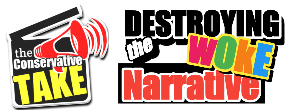[ad_1]
Against the monopoly of Amazon, a free market for books could imply coordination of resale pricing.
Recent problems with TAC have contained lamentations in regards to the disappearance of unbiased booksellers and Amazon’s near-emerging monopoly on bookselling, with its cancellation of works praising Justice Clarence Thomas and questioning transgender orthodoxy. The ordinary treatment proposed is voluntary patronage of the few surviving unbiased booksellers. But it might shock readers to know that there was as soon as, and nonetheless is in lots of components of the world, a authorized regime, not depending on authorities, that accords authors and publishers the means to guarantee a degree taking part in subject in bookselling.
That regime is resale value upkeep, as soon as referred to as “fair trade,” that permits publishers to set and implement agency resale costs for the works they publish. This proper doesn’t remove competitors amongst booksellers. It curtails value competitors to make certain, however diverts it to competitors in stock, pre-sale recommendation, supply and different companies, and in facilities together with social occasions, guide gala’s, and guide talks.
Destructive value competitors within the guide commerce normally manifests itself not in across-the-board value reductions that also go away costs above retailers’ prices, however in “loss-leader” promoting of a handful of “best sellers” designed to draw clients of above-average earnings who will buy different merchandise. The proprietor of a New York division retailer admitted as a lot in 1914: “My own firm seldom, if ever–with the exception of books–uses these restrictive price articles for advertising purposes.”
Price upkeep was usually prohibited as a violation of the Sherman Antitrust Act by the Supreme Court’s Dr. Miles determination in 1911 over the vehement dissent of Justice Oliver Wendell Holmes that businessmen “should be left to do their own business in their own way, save where the ground for interference is very plain.” Its legalization was urged by Louis Brandeis, whose efforts and these of others, together with the copyright lawyer Morris Ernst, finally gave rise to the National Recovery Administration booksellers code in 1934 and the extra common Miller-Tydings Fair Trade Act of 1937 and McGuire Act of 1952, later eviscerated by activist Supreme Court selections earlier than being repealed in 1975. However, the Dr. Miles case was later overruled, resale value upkeep no longer being completely prohibited however topic to a “rule of reason.”
In Great Britain, the primary guide to be value maintained was Sir Alfred Marshall’s Principles of Economics on the flip of the twentieth century; authorities commissions, together with one with John Maynard Keynes, upheld the apply as within the public curiosity in 1920 and 1949. The Restrictive Practices Act of 1956 required its scrutiny by a Restrictive Practices Court, which upheld the practices in 1962, declaring: “There may not be many mute inglorious Miltons about, but there may be some, and we think that the chances of their muteness might be increased if publishers were constrained to be less adventurous than they are now.”
In 1997, below a brand new statute, the apply was invalidated by an economically doctrinaire choose, ensuing within the early disappearance of about half of Britain’s unbiased booksellers. An try and ban resale value upkeep within the French guide commerce was reversed by the Mitterand authorities, which enacted the loi Lang, named after its tradition minister. Price upkeep remains to be practiced within the guide trades of Argentina, Austria, Belgium, Croatia, Denmark, France, Germany, Greece, Hungary, Italy, Japan, Mexico, the Netherlands, Norway, Portugal, Slovenia, and Spain.
Given the overruling of Dr. Miles, a courageous writer might attempt to implement it within the United States by refusing to cope with price-cutters; costly litigation would ensue. The wanted treatment is statutory—it might be tough to attain, however well worth the effort. The focus in bookselling has given rise to a focus in publishing, with 5 (quickly to be 4) main commerce publishers instead of dozens, and the disappearance of middle-market books save these sponsored by universities.
George Liebmann, the son of a New York bookseller whose store closed in 1961, is president of the Library Company of the Baltimore Bar and creator of varied works on regulation and public coverage.
[ad_2]
Source hyperlink















